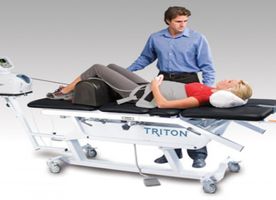Human Growth Hormone (HGH) Treatment in Batam
Search and Compare the Best Clinics and Doctors at the Lowest Prices for Human Growth Hormone (HGH) Treatment in Batam






































































































































No Time?
Tell us what you're looking for and we'll reach out to the top clinics all at once


What does a Human Growth Hormone (HGH) Treatment Procedure Involve?
In human growth hormone (HGH) treatments, your doctor will give the lab-developed HGH in the form of injections. The treatments can be self-administered or given by a doctor. Doses usually occur several times a week or daily. Your doctor will check your specific condition to determine the correct doses for you. Doctors usually base HGH treatment on several factors, including:
-
General health and medical history
-
Age
-
The extent of the condition, such as the severity of the deficiency
-
Goals of treatments
-
Tolerance for specific treatment
-
Preference and choice.
Once your doctor determines the correct doses for you, they will prescribe the lab-developed HGH for you to administer the injections yourself or they will administer the HGH during the appointment. Your doctor may inject the HGH intramuscularly (IM) or subcutaneously (under the skin). The HGH may be injected into the thigh or abdomen.
If you choose to administer the HGH yourself or administer it for your child, your doctor will teach you the correct and safe way to do it. Your doctor will also tell you how to store the injections and the best time to administer the injections. The recommended injection sites include the back of arms, sides of the belly, top or outside of thighs, and outer quadrant of buttocks.
How Long Should I Stay in Batam for a Human Growth Hormone (HGH) Treatment Procedure?
You can leave the hospital or clinic right away after your HGH treatment. You may be able to leave Batam the same day or the next day after the procedure. However, if your doctor scheduled a follow-up checkup in a week or so to check your condition, you may need to stay in the country longer.
What's the Recovery Time for Human Growth Hormone (HGH) Treatment Procedures in Batam?
Normally, no recovery time is needed after HGH treatment. You may be allowed to return to your normal activity, including work and exercise, immediately after the procedure. Your doctor should give you a detailed timeline for your recovery.
What sort of Aftercare is Required for Human Growth Hormone (HGH) Treatment Procedures in Batam?
There is usually no special aftercare needed after HGH treatment, but make sure to attend follow-up checkups every month to check your condition. In some cases, you can choose to schedule these checkups with your local doctor instead of your doctor in Batam if you cannot travel back and forth. During the checkups, your doctor will carry out blood tests to see if treatments should be decreased, increased, or stopped. Blood sugar levels, cholesterol levels, and bone density will also be checked to see if they are healthy.
What's the Success Rate of Human Growth Hormone (HGH) Treatment Procedures in Batam?
FDA-approved uses for HGH treatment are found to be safe, effective, and highly successful. For children with poor growth, the treatment may help them grow 1 to 2 inches within the first 6 months and about 4 inches or more over the first 3 years. Another 3 inches or more can be gained during the next 2 years.
While FDA-approved uses for HGH treatment are safe, there are some risks you need to be aware of, including:
-
Muscle, joint, or nerve pain
-
High cholesterol levels
-
Carpal tunnel syndrome
-
Type 2 diabetes
-
Swelling in the legs and arms (edema)
-
Increased risk of certain cancer
-
Increased insulin resistance.
Make sure that you get HGH treatment from a board-certified and experienced doctor.
Are there Alternatives to Human Growth Hormone (HGH) Treatment Procedures in Batam?
The alternative to HGH treatment depends on your specific condition. For instance, if you need a procedure to treat short bowel syndrome, you can consider medications or surgery (such as small bowel transplantation) as the alternatives. If you want to undergo HGH treatment for reasons that are not FDA-approved, for example, to get the anti-ageing effects, you can consider other cosmetic treatments that have been scientifically proven to do so, such as Botox injections.
What Should You Expect Before and After the Procedure
Before HGH treatment, you may have short bowel syndrome or HGH deficiency, or your child may experience poor growth. After the procedure, these problems should be treated, or at least managed. Body development will be enhanced and energy should be restored. Overall, successful HGH treatment should increase your quality of life.
This information has been accurately sourced and verified by a medical professional for its accuracy, however, we strongly recommend you to consult with your doctor before pursuing medical procedures overseas.








